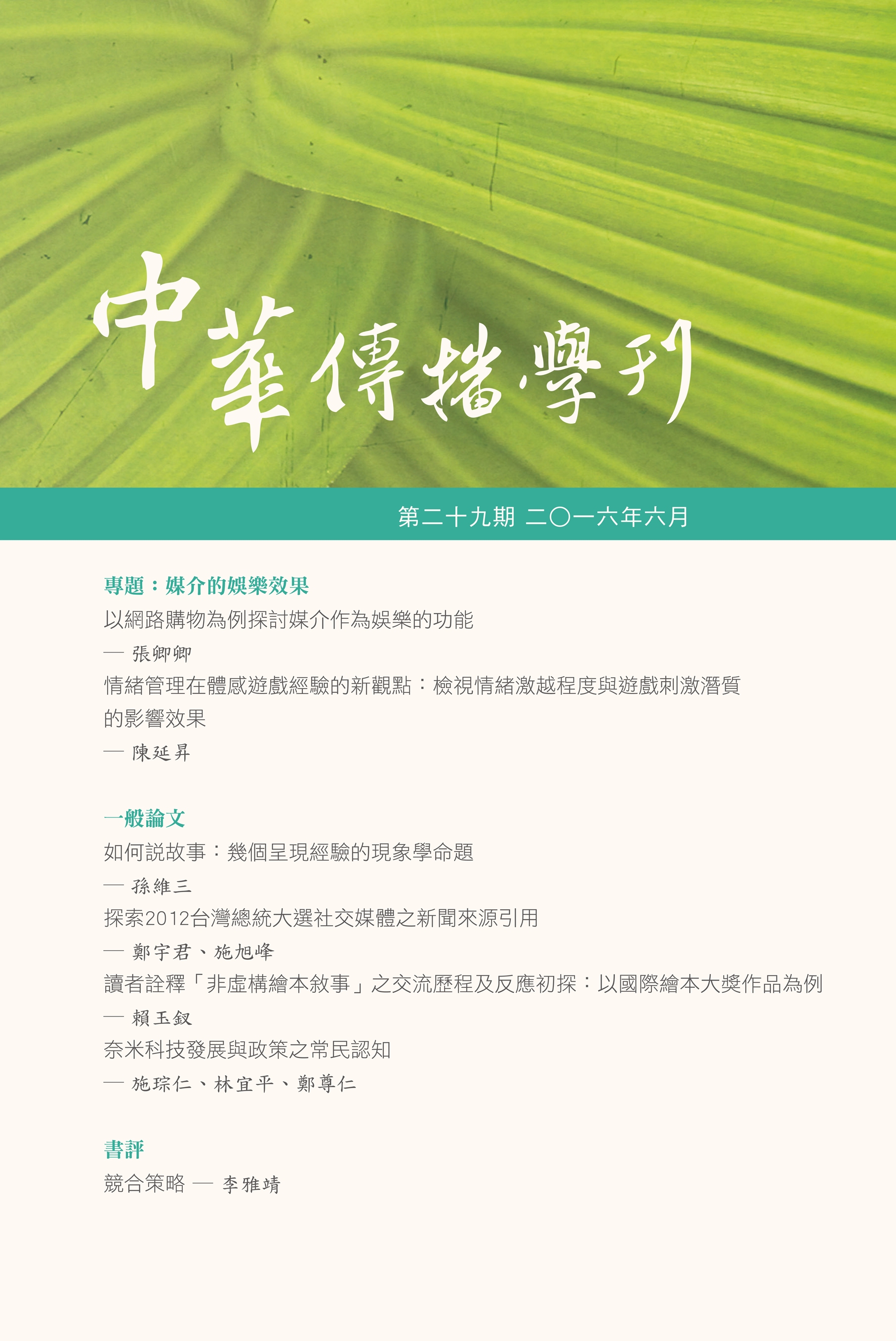 閱覽人數: 1778
閱覽人數: 1778
June
2016
No. 29
媒介的娛樂效果
Effects of Media Entertainment頁數:183 - 219
作者(中)
施琮仁*、林宜平、鄭尊仁
作者(英)
Tsung-Jen Shih, Yi-Ping Lin, & Tsun-Jen Cheng
關鍵詞(中)
公眾感知、奈米科技、奈米產品標示、風險溝通
關鍵詞(英)
public perception, nanotechnology, labeling, risk communication
中文摘要
本研究的主要目的在瞭解民眾對奈米科技發展的態度,以及對
奈米產品標示的看法。透過全國性電話調查資料(N = 941),本研究發現民眾對於奈米科技的支持與否,受其本身科學價值觀的影響較深,而非奈米知識的多寡。此結果顯示,在風險溝通的過程中,提供訊息並非增加民眾支持度之有效策略,傳播者也應注意認知捷徑的影響。在產品標示方面,風險感知、倫理衝突感知是主要預測變項,可見標示可能成為一種「警告機制」,影響奈米產品之銷售。
奈米產品標示的看法。透過全國性電話調查資料(N = 941),本研究發現民眾對於奈米科技的支持與否,受其本身科學價值觀的影響較深,而非奈米知識的多寡。此結果顯示,在風險溝通的過程中,提供訊息並非增加民眾支持度之有效策略,傳播者也應注意認知捷徑的影響。在產品標示方面,風險感知、倫理衝突感知是主要預測變項,可見標示可能成為一種「警告機制」,影響奈米產品之銷售。
英文摘要
This study seeks to understand how the general public in Taiwan makes sense of an emerging technology -- nanotechnology, and its related policy. Based on a nationally representative survey (n = 941), this study found that education, positive scientific values, Internet use, and benefit perception were positively associated with public support, whereas risk perception and moral perception had a negative relationship.
These findings were largely in consistence with existent literature mostly generated from the U.S. and Europe about the limited role of scientific knowledge.
In terms of public attitudes toward the policy of labeling nanoproducts, the predictors were quite different. Only risk perception, moral
conflict, and support for nanotechnology were found to correlate with the necessity of labeling in a positive way. The association between labeling and some negative perceptions of nanotechnology (risk and moral conflict)
suggests that people may view labeling as a warming mechanism.
These findings were largely in consistence with existent literature mostly generated from the U.S. and Europe about the limited role of scientific knowledge.
In terms of public attitudes toward the policy of labeling nanoproducts, the predictors were quite different. Only risk perception, moral
conflict, and support for nanotechnology were found to correlate with the necessity of labeling in a positive way. The association between labeling and some negative perceptions of nanotechnology (risk and moral conflict)
suggests that people may view labeling as a warming mechanism.